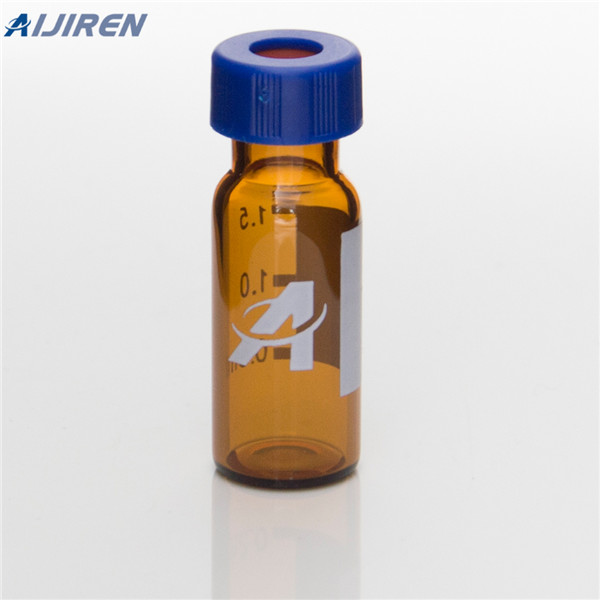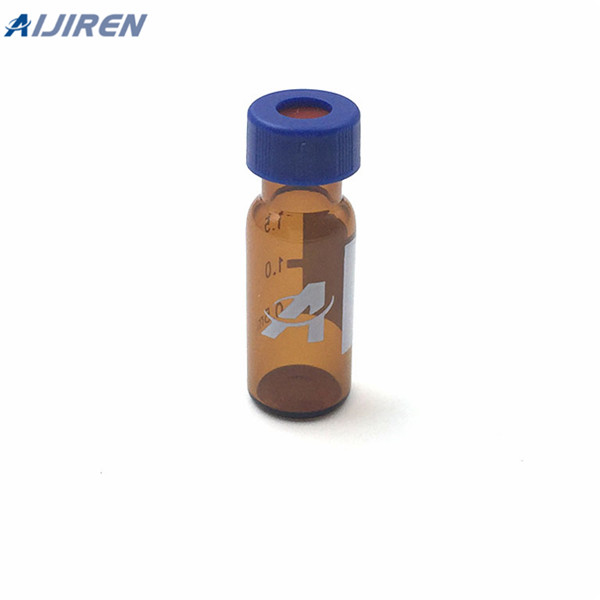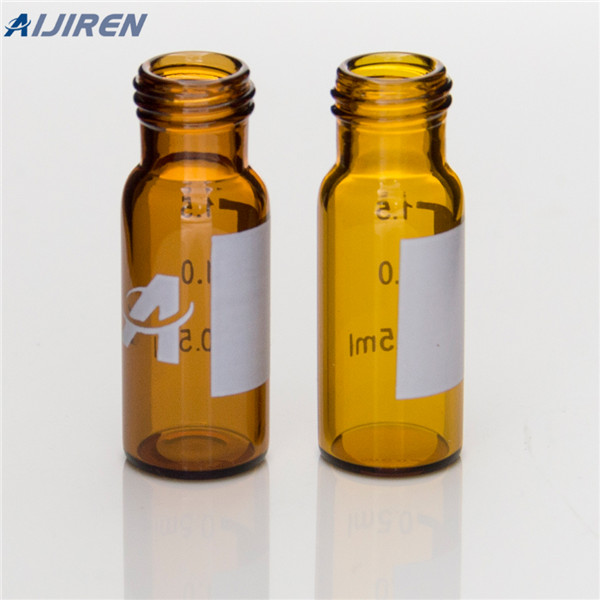
Chromatography vials are typically used as temporary sample containers for subsequent gas chromatography (GC) or liquid chromatography (LC) analysis. Consider these factors when choosing the correct vial for your applications.

Apr 7, 2009 · The column and conditions of HPLC analysis were as described in HPLC section except the mobile phase, which contains v/v acetonitrile: 0.1% acetic acid. Foil laminate extract was analyzed by LC/MS in full-scan positive-ion mode using a 50 to 1500 m/z scan range. Following the assignment of MS ions for the identified peaks, the extract was
.jpg)
May 10, 2022 · The isomerization and dimerization of ezetimibe occurred in approximately 15% of glass HPLC vials tested. In those studies, the APIs were prone to epimerization under mild basic conditions due to either the acidic alpha-proton promoting enolation [2] or the perfluorophenoxy serving as an excellent electron withdrawing group that could promote

High-Performance Liquid Chromatography. High-performance liquid chromatography (HPLC) is a form of column chromatography that pumps a sample mixture or analyte in a solvent (known as the mobile phase) at high pressure through a column with the help of stationary phase. From: Evolutionary Diversity as a Source for Anticancer Molecules, 2021.

Guidance for Designing Inactivation Studies Design bench scale experiments to simulate full scale conditions • Typically in vials or within dialysis cassettes Conditions should be the least conducive (worst -case) for inactivation • Example: for a cleaning wash, the lowest applicable concentration of cleaning

May 9, 2013 · High performance liquid chromatography (or high pressure liquid chromatography, HPLC) is a form of column chromatography used frequently in biochemistry and analytical chemistry, to separate, identify, and quantify compounds, based on their idiosyncratic polarities and interactions with the column's stationary phase.

Apr 1, 2023 · Epimerization of nirmatrelvir was observed during its related substances testing when glass HPLC vials were used. • LC-PDA/UV-MS n, NMR, and H/D exchange studies provide key evidence for identification and formation mechanism of the epimer. • Leachable impurities from glass HPLC vials are the root cause of the solution degradation.

Extracting, detecting and quantifying a wide range of PFAS chemicals from soil can pose challenges. As a result, the US EPA issued Draft Method 1633 for detecting PFAS chemicals in non-potable matrices. Thermo Scientific sample preparation, chromatography, and mass spectrometry instruments and software can provide these analyses for both

control for the HPLC -SEC analysis. For SEC-HPLC and Sedimentation Velocity Analytical Ultracentrifugation three vials were thawed at ambient temperature prior to analysis. Earlier studies conducted during development showed that exposure to elevated temperatures can cause the generation of aggregates detected by SEC-HPLC.

Jul 19, 2016 · For many analysts in the pharmaceutical analysis laboratory, the most familiar use of replicates in standard measurement is the 6 injections performed as part of system suitability testing for

Analytical Vials Vials play a significant role in analytical analysis and result reproducibility. Vials must be inert and free of extractables or leachables to prevent affecting results. Using certified, application-specific, contaminant-free vials can significantly reduce risk.

Feb 28, 2018 · In our studies, shown in Fig. 3b–d, close and significant correlation between ELISA and SE-HPLC analytical methods validate SE-HPLC as a method to evaluate different formulation compositions over the wide dynamic range of the SE-HPLC method. Based on these findings, SE-HPLC was used as the analytical technique for a majority of the subsequent

The analytical cycle represents all of the steps from the point of collection to the final analysis and data output. Although sample preparation is an important part of this analytical cycle, it doesn’t always get the respect as does the separation and measurement instrumentation and the data handling aspects.

Purge pump at high flow rate (e.g., 5-10 mL/min.), prime system if necessary. (Prime each pump head separately.) If system has check valve, loosen valve to allow air to escape. If problem persists, flush system with 100% methanol or isopropanol. If problem still persists, contact system manufacturer.

Jan 14, 2021 · The pH of the injection solution was adjusted with either acetic acid or sodium hydroxide to achieve a value of pH = 5.5. A sufficient amount of injection sample was transferred directly into the HPLC vials for HPLC automated analysis. 2.5. Stability Samples 2.5.1. Accelerated Stability Study